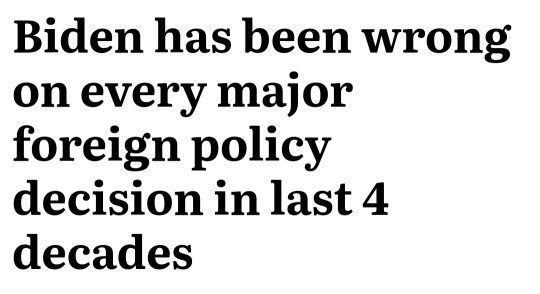#Government Policies & Interventions
Text


#political commentary#capitalism#corporate power#consumerism#economic policy#socialism#government intervention#market dynamics
135 notes
·
View notes
Text
thinking about an au where the Hero Association does not exist...
#opm#shit would be so much more fucked up than it is /with/ the HA. but also pretty interesting considering everyone would get more exposure...??#to each other i mean. i think there would be more interaction between the characters that way. because i do feel the entire hierarchy system#the HA employs /does/ tend to put certain distance between the characters. figuratively speaking...#and then there's the whole accountability of the heroes and government's policies regarding heroes /intervention in/concerns about#the heroes' activities OR if there would be anything barely resembling a government at all or it all just collapses under the pressure of#monster attacks. maybe people will start to form factions or something to protect their own...#maybe there will come a point when the monsters are more organized than the good humans. bcs the bad humans will always be organized.#in not only opm but in whatever universe cause you can only remain evil in the long run if you're exceedingly good at whoever you're#screwing up. gotta maintain your 'presence' and everything i guess. take control and stuff. idk#nothing solid rn just making up bs in my head for fun#nobody look at me this sounds so weird. gods... but i have to let it out *whining noises*
13 notes
·
View notes
Text
youtube
#youtube#militarytraining#Antony Blinken#security assistance#political unrest#crisis management#Secretary of State#Haiti security#humanitarian aid#international relations#US intervention#global security#Haiti#Haiti crisis#diplomacy#United Nations#Haiti government#foreign affairs#US foreign policy#gang violence#Caribbean#2024 news#international cooperation#Caribbean politics#security meeting#New York City#geopolitical issues#political news#government meeting#2024 events
0 notes
Text
The Case for Legalizing and Safely Producing All Drugs
A farmer gathers his crop’s production
The argument for legalizing and safely producing all drugs is gaining traction, driven by a mix of public health and economic concerns. The current approach to drug policy has failed to stem the tide of overdose deaths, with over 600,000 people having lost their lives to acute drug overdoses. To put that in perspective, this is more than the combined combat…
#addiction#change the law#dea#drug#drug abuse#drug addiction#drug buying#drug crisis#drug enforcement#drug law reform#drug laws#drug legalization#drug overdose#drug overdoses#drug policy#drug prohibition#drug use#drug use laws#drug war#drugs#effects of prohibiton#effects of the drug war#epidemic#financial burden#future#future of drugs#government#government intervention#health#opiate overdose
1 note
·
View note
Text
“When the facts change, I change my mind."

John Maynard Keynes (1883-1946) is one of the most influential economists of modern times. Educated at Cambridge University, he returned to teach at, and become a fellow of, Kings College, Cambridge. In 1915 Keynes joined the UK Treasury and acted as an advisor to government for many years.
The General Theory of Employment, Interest, and Money: John Maynard Keynes is best known for his seminal work, "The General Theory of Employment, Interest, and Money" (1936), which laid the foundation for modern macroeconomics and introduced concepts such as aggregate demand and the importance of government intervention in the economy.
Role in the Bretton Woods Conference: Keynes played a significant role in the Bretton Woods Conference in 1944, which led to the establishment of the International Monetary Fund (IMF) and the World Bank, aiming to stabilize the global economy post-World War II.
Keynesian Economics: Keynesian economics advocates for increased government expenditures and lower taxes to stimulate demand and pull the global economy out of depression. This theory became particularly influential during and after the Great Depression.
Advisor to the UK Government: Throughout his career, Keynes served as an economic advisor to the British government, especially during World War I and the Great Depression, helping to shape economic policy and wartime financing.
Cambridge Apostle: During his time at Cambridge University, Keynes was a member of the Cambridge Apostles, an intellectual secret society. This group included many prominent thinkers and had a significant influence on Keynes's intellectual development.
#John Maynard Keynes#Keynesian economics#Cambridge University#Kings College Cambridge#Influential economist#Macroeconomics#UK Treasury#Government advisor#The General Theory of Employment#Interest and Money#Economic policy#Fiscal policy#Keynesian Revolution#Aggregate demand#Employment theory#Depression economics#20th-century economics#Economic intervention#Keynesianism#British economist#Public spending#quoteoftheday#today on tumblr
0 notes
Text
World Toilet Day: A Call to Action for Global Sanitation
Unveiling the Hidden Sanitation Crisis: A World in Need, World Toilet Day, observed annually on November 19th, is a stark reminder of the global sanitation crisis that continues to plague billions of people worldwide. Despite significant progress in recent decades, an estimated 2.3 billion people still lack access to basic sanitation services. At the same time, 673 million engage in open…

View On WordPress
#19 November#Be the Change: Invest in Toilets for a Better Future#behavioral change#call to action#changemakers#cholera#community-led initiatives#gender disparities#global sanitation crisis#government interventions#government policies#health#hepatitis#human rights#hygiene education#innovation#innovations#perpetuates a cycle of poverty#Policy advocacy#public health#Sanitation#sanitation resilience#sanitation-related illnesses#SDGs#SDGs by 2030#state-of-the-art toilets#Sustainable Development Goal 6#Sustainable Development Goals#The theme of World Toilet Day 2023#typhoid
0 notes
Text
What's better to admire than money?
I mean, why money? Money’s just a symbol of power; it’s not the power itself. We kinda rely on it, but we’re still around even when we’re broke.The weird thing about money worship is that it’s not really about what you can buy; it’s treated like some sort of deity.If money were a god, what would it offer? Would it give us fame, fortune, happiness, or just some peace of mind?Are rich folks…

View On WordPress
#citizen empowerment#collective well-being#community support#cooperative economics#democratic socialism#economic equality#education access#environmental sustainability#equitable distribution#equitable opportunities#fairness#government intervention#grassroots movements#inclusive policies#income equity#people&039;s power#progressive taxation#progressive values#public welfare#social justice#social reforms#social safety nets#solidarity#universal healthcare#wealth gap reduction#wealth redistribution#wealth sharing#wealth taxation#worker&039;s rights
1 note
·
View note
Text

If America wanted to achieve the complete and near-total unity of the Yemeni people, they have surely succeeded.
"Our disagreement with the Houthis will not make us Zionists. We will set aside the past and unite for what is to come. Our rifles beside the Houthis' rifles. We endorse all options in responding to the American and British aggression. We bear the full consequences of supporting the Palestinians. By Allah, we will not sleep while the children of Gaza are under bombardment. Those of us who die become martyrs, and those who live remain honorable."

From an official in the US-backed "legitimate Yemeni government"
"Despite our great rivalry with the Houthis, we will not accept American or British military intervention in our country."

Another official from the US-backed Yemeni government in exile. Demented Biden has committed his greatest self-own. Decades of foreign policy reversed in 5 minutes.
"Any Yemeni supporting the United States, Britain, and the countries of the Zionist ship protection alliance should reconsider their Yemeni identity and Arab roots. These countries protect and support the terrorist Zionist entity that has killed 30,000 children, women, and residents of Gaza. When the Red and Arabian Seas were closed to ships heading to this terrorist entity, this dirty alliance struck Yemen, punishing it for its honorable stance towards Gaza and Palestine. We may differ internally on many issues, but Palestine is our foremost cause and will remain so. Any aggression against Yemen by global terrorist states will be strongly opposed, with millions of the great Yemeni people at the forefront defending the soil of Yemen."

Oh my god. Yeah, America screwed up big time with their airstrikes. If you can get Alhazmi to hate you, then you're truly lost.
This guy is a long time affiliate of the US-backed Islah party. He joins the dozens of other nominally US-backed officials condemning the strikes.
[Machine Translation Follows]
From my point of view, no one will outdo me in my position on the Houthis, but I say what I really see:
Attacking any inch of Yemen is considered blatant and condemnable hostility, and no rational person would accept it
America and Britain are the main reason for the situation in the region and the crimes being committed there, and they, along with the Zionist entity, are violating all the laws of heaven and earth.
Stop the genocide of #Gaza, you murderers.
3K notes
·
View notes
Text
Angus Maddison and His Contributions to Economic History: Measuring and Comparing Economic Growth Across Countries and Regions Over Time
Angus Maddison (1926-2010) was a prominent British economist and economic historian who made significant contributions to the field of international economic history. His work focused on measuring and comparing economic growth across countries and regions over long periods of time, using data from his comprehensive Maddison Project Database.
Education and Career
Maddison received his…

View On WordPress
#Alexander Gerschenkron Prize#Angus Maddison#Balzan Prize#China#colonialism#economic growth#economic history#free trade#GDP#government intervention#imperialism#India#international economics#long-term trends#Maddison Project Database#market-oriented reforms#protectionist policies#United States
0 notes
Text
Unending violence against women in India :WHAT GOVERNMENT DO
Unending violence against women in India :WHAT GOVERNMENT DO
Unending violence against women in India and girls is one of the world’s most prevalent human rights violations, taking place every day, many times over, in every corner of the globe. It has serious short- and long-term physical, economic and psychological consequences on women and girls, preventing their full and equal participation in society.
Mother nature made women an equal half of human…

View On WordPress
#GOVERNMENT INITIATIVE FOR WOMEN WMPOWERMENT#government policies and interventions#GS PAPER 1 UPSC/UPPSC MATERIAL#VIOLENCE AGAINST WOMEN IN INDIA#FEMALE FOETICIDE
0 notes
Text
“This raises the question: if industrial production is necessary to meet decent-living standards today, then perhaps capitalism—notwithstanding its negative impact on social indicators over the past five hundred years—is necessary to develop the industrial capacity to meet these higher-order goals. This has been the dominant assumption in development economics for the past half century. But it does not withstand empirical scrutiny. For the majority of the world, capitalism has historically constrained, rather than enabled, technological development—and this dynamic remains a major problem today.
It has long been recognized by liberals and Marxists alike that the rise of capitalism in the core economies was associated with rapid industrial expansion, on a scale with no precedent under feudalism or other precapitalist class structures. What is less widely understood is that this very same system produced the opposite effect in the periphery and semi-periphery. Indeed, the forced integration of peripheral regions into the capitalist world-system during the period circa 1492 to 1914 was characterized by widespread deindustrialization and agrarianization, with countries compelled to specialize in agricultural and other primary commodities, often under “pre-modern” and ostensibly “feudal” conditions.
In Eastern Europe, for instance, the number of people living in cities declined by almost one-third during the seventeenth century, as the region became an agrarian serf-economy exporting cheap grain and timber to Western Europe. At the same time, Spanish and Portuguese colonizers were transforming the American continents into suppliers of precious metals and agricultural goods, with urban manufacturing suppressed by the state. When the capitalist world-system expanded into Africa in the eighteenth and nineteenth centuries, imports of British cloth and steel destroyed Indigenous textile production and iron smelting, while Africans were instead made to specialize in palm oil, peanuts, and other cheap cash crops produced with enslaved labor. India—once the great manufacturing hub of the world—suffered a similar fate after colonization by Britain in 1757. By 1840, British colonizers boasted that they had “succeeded in converting India from a manufacturing country into a country exporting raw produce.” Much the same story unfolded in China after it was forced to open its domestic economy to capitalist trade during the British invasion of 1839–42. According to historians, the influx of European textiles, soap, and other manufactured goods “destroyed rural handicraft industries in the villages, causing unemployment and hardship for the Chinese peasantry.”
The great deindustrialization of the periphery was achieved in part through policy interventions by the core states, such as through the imposition of colonial prohibitions on manufacturing and through “unequal treaties,” which were intended to destroy industrial competition from Southern producers, establish captive markets for Western industrial output, and position Southern economies as providers of cheap labor and resources. But these dynamics were also reinforced by structural features of profit-oriented markets. Capitalists only employ new technologies to the extent that it is profitable for them to do so. This can present an obstacle to economic development if there is little demand for domestic industrial production (due to low incomes, foreign competition, etc.), or if the costs of innovation are high.
Capitalists in the Global North overcame these problems because the state intervened extensively in the economy by setting high tariffs, providing public subsidies, assuming the costs of research and development, and ensuring adequate consumer demand through government spending. But in the Global South, where state support for industry was foreclosed by centuries of formal and informal colonialism, it has been more profitable for capitalists to export cheap agricultural goods than to invest in high-technology manufacturing. The profitability of new technologies also depends on the cost of labor. In the North, where wages are comparatively high, capitalists have historically found it profitable to employ labor-saving technologies. But in the peripheral economies, where wages have been heavily compressed, it has often been cheaper to use labor-intensive production techniques than to pay for expensive machinery.
Of course, the global division of labor has changed since the late nineteenth century. Many of the leading industries of that time, including textiles, steel, and assembly line processes, have now been outsourced to low-wage peripheral economies like India and China, while the core states have moved to innovation activities, high-technology aerospace and biotech engineering, information technology, and capital-intensive agriculture. Yet still the basic problem remains. Under neoliberal globalization (structural adjustment programs and WTO rules), governments in the periphery are generally precluded from using tariffs, subsidies, and other forms of industrial policy to achieve meaningful development and economic sovereignty, while labor market deregulation and global labor arbitrage have kept wages extremely low. In this context, the drive to maximize profit leads Southern capitalists and foreign investors to pour resources into relatively low-technology export sectors, at the expense of more modern lines of industry.
Moreover, for those parts of the periphery that occupy the lowest rungs in global commodity chains, production continues to be organized along so-called pre-modern lines, even under the new division of labor. In the Congo, for instance, workers are sent into dangerous mineshafts without any modern safety equipment, tunneling deep into the ground with nothing but shovels, often coerced at gunpoint by U.S.-backed militias, so that Microsoft and Apple can secure cheap coltan for their electronics devices. Pre-modern production processes predicated on the “technology” of labor coercion are also found in the cocoa plantations of Ghana and Côte d’Ivoire, where enslaved children labor in brutal conditions for corporations like Cadbury, or Colombia’s banana export sector, where a hyper-exploited peasantry is kept in line by a regime of rural terror and extrajudicial killings overseen by private death squads.
Uneven global development, including the endurance of ostensibly “feudal” relations of production, is not inevitable. It is an effect of capitalist dynamics. Capitalists in the periphery find it more profitable to employ cheap labor subject to conditions of slavery or other forms of coercion than they do to invest in modern industry.”
Capitalism, Global Poverty, and the Case for Democratic Socialism by Jason Hickle and Dylan Sullivan
595 notes
·
View notes
Text
Don't risk a rerun of the 2000 election.
In the first presidential election of the 21st century many deluded progressives voted for Green Party candidate Ralph Nader.
Their foolishness gave us eight years of George W. Bush who plagued the country with two recessions (including the Great Recession) and two wars (one totally unnecessary and one which could have been avoided if he heeded an intelligence brief 5 weeks before 9/11).
Oh yeah, Dubya also appointed one conservative and one batshit crazy reactionary to the US Supreme Court. Roberts and Alito are still there.
Paul Waldman of the Washington Post offers some thoughts.
Why leftists should work their hearts out for Biden in 2024
Ask a Democrat with a long memory what the numbers 97,488 and 537 represent, and their face will twist into a grimace. The first is the number of votes Ralph Nader received in Florida in 2000 as the nominee of the Green Party; the second is the margin by which George W. Bush was eventually certified the winner of the state, handing him the White House.
Now, with President Biden gearing up for reelection, talk of a spoiler candidate from the left is again in the air. That’s unfortunate, because here’s the truth: The past 2½ years under Biden have been a triumph for progressivism, even if it’s not in most people’s interest to admit it.
This was not what most people expected from Biden, who ran as a relative moderate in the 2020 Democratic primary. His nomination was a victory for pragmatism with its eyes directed toward the center.
But today, no one can honestly deny that Biden is the most progressive president since at least Lyndon B. Johnson. His judicial appointments are more diverse than those of any of his predecessors. He has directed more resources to combating climate change than any other president. Notwithstanding the opposition from the Supreme Court, his administration has moved aggressively to forgive and restructure student loans.
Three years ago the economy was in horrible shape because of Trump's mishandling of the pandemic. Now unemployment is steadily below 4%, job creation continues to exceed expectations, and wages are rising as unions gain strength. The post-pandemic, post-Afghan War inflation rate has receded to near normal levels; people in the 1970s would have sold their souls for a 3.2% (and dropping) inflation rate. And many of the effects of "Bidenomics" have yet to kick in.
And in a story that is criminally underappreciated, his administration’s policy reaction to the covid-induced recession of 2020 was revolutionary in precisely the ways any good leftist should favor. It embraced massive government intervention to stave off the worst economic impacts, including handing millions of families monthly checks (by expanding the child tax credit), giving all kids in public schools free meals, boosting unemployment insurance and extending health coverage to millions.
It worked. While inflation rose (as it did worldwide), the economy’s recovery has been blisteringly fast. It took more than six years for employment rates to return to what they were before the Great Recession hit in 2008, but we surpassed January 2020 jobs levels by the spring of 2022 — and have kept adding jobs ever since.
To the idealistic leftist, that might feel like both old news and a partial victory at best. What about everything supporters of Bernie Sanders have found so thrilling about the Vermont senator’s vision of the future, from universal health care to free college?
It’s true Biden was never going to deliver that, but to be honest, neither would Sanders had he been elected president. And that brings me to the heart of how people on the left ought to think about Biden and his reelection.
Biden has gotten things done. The US economy is doing better than those of almost every other advanced industrialized country.
Our rivals China and Russia are both worse off than they were three years ago. And NATO is not just united, it's growing.
Sadly, we still need to deal with a far right MAGA cult at home who would wreck the country just to get its own way.
Biden may be elderly and unexciting, but that is one of the reasons he won in 2020. Many people just wanted an end to the daily drama of Trump's capricious and incompetent rule by tweet. And a good portion of those people live in places that count greatly in elections – suburbs and exurbs.
Superhero films seem to be slipping in popularity. Hopefully that's a sign that voters are less likely to embrace self-appointed political messiahs to save them from themselves.
Good governance is a steady process – not a collection of magic tricks. Experienced and competent individuals who are not too far removed from the lives of the people they represent are the best people to have in government.
Paul Waldman concludes his column speaking from the heart as a liberal...
I’ve been in and around politics for many years, and even among liberals, I’ve almost always been one of the most liberal people in the room. Yet only since Biden’s election have I realized that I will probably never see a president as liberal as I’d like.
It’s not an easy idea to make peace with. But it suggests a different way of thinking about elections — as one necessary step in a long, difficult process. The further you are to the left, the more important Biden’s reelection ought to be to you. It might require emotional (and policy) compromise, but for now, it’s also the most important tool you have to achieve progressive ends.
Exactly. Rightwingers take the long view. It took them 49 years but they eventually got Roe v. Wade overturned. To succeed, we need to look upon politics as an extended marathon rather as one short sprint.
Republicans may currently be bickering, but they will most likely unite behind whichever anti-abortion extremist they nominate.
It's necessary to get the word out now that the only way to defeat climate-denying, abortion-restricting, assault weapon-loving, race-baiting, homophobic Republicans is to vote Democratic.

#paul waldman#liberalism#election 2000#election 2024#joe biden#third parties#vote blue no matter who#donald trump#dumpster fire#trumpster fire#fascism vs. democracy#nra republicans#abortion#climate change#lgbtq+ rights#race-baiting#take the political long view#phil hands
496 notes
·
View notes
Note
Idk how to feel about China opening diplomatic relations with the Taliban. Yes Afghanistan's assets should be unfrozen and the entire reason the Taliban runs Afghanistan now is the fault of the US, but they are still an extremely brutal reactionary theocracy enforcing the most extreme gender apartheid in the world. It's not China's (or anyone's) place to change that obviously, but I can't bring myself to celebrate China opening diplomacy with them as a win for the third world.
So, in a word: non-interference.
You're right that the Taliban are a reactionary organisation, and you're right that they're in power because of US interference and invasion. Furthermore, you correctly point out that China should not attempt to change the internal political structure of Afghanistan, but the reason for that is much more than an abstract notion of sovereignty or respect - it is moreso a matter of practicality.
The Taliban are in power because they are the Afghan-nationalist group most favourable to US interests. The US would prefer its puppet government be in power, but failing that, there are groups it very much does not want to take power, such as Afghan communist organisations. The US directs more resources to undernining those groups than it does the Taliban. In any case, the Taliban are still better for Afghanistan than the US-comprador government is, but they are still ultimately in power due to continued US intervention. The US refusal to recognise the Taliban is an element in a continuum of intervention, attempting to tip the scale towards US-favourable groups - it is, counter-intuitively, an element of the exact strategy that is keeping the Taliban in power.
China's non-interference policy not only does not influence the internal affairs of other countries - inherently, it actively *weakens* US influence in those countries. If the threat keeping US-favourable groups in power is sanctions, blockade, and international non-recognition, then the credible promise that China, an incredibly useful partner, will engage with *whichever* domestic group takes power, no matter their ideology, allows for organic Afghan interests to express themselves and bring about organic Afghan political goals. Similarly, the provisioning of no-strings-attached investment, infrastructure, etc, makes US support of preferred groups less effective, as Afghanistan is both less desperate for support, and also has less incentive to take aid packages that include 'restructuring' demands.
In essence: refusing relations with the Taliban, like the US is doing, is part of the exact gradient of political-economic pressures that keeps the Taliban (the group least threatening to US interests, other than an unsustainable puppet) in power. Opening non-judgemental relations to *whoever* achieves power weakens that gradient, and strengthens the ability for the genuine interests of the Afghan people to determine who achieves and retains power. China refusing to open relations with the Afghan government because they do not align ideologically would not change that gradient at all, and could only add yet another set of foreign interests overriding those of the people (interests which could not be more commanding than those of the US military empire, in any case). Free and non-judgemental relations with a reliable trading partner is precisely the environment that weakens the political base of reactionary organisations, and strengthens genuinely revolutionary ones.
399 notes
·
View notes
Text
Trans rights and intersex rights are always going to go hand in hand. No one should be prevented from accessing gender affirming medical care and no one should be forced to undergo unwanted medical interventions to make them conform to society's binary sex ideal. It's about choice and bodily autonomy.
If your arguments for the rights of one of these groups ignore the other, idealize the experiences of the other, or tokenize the other without actually advocating for its rights (example: "cis kids have easy access to the same treatments trans kids desperately need!" ignoring that many of those cis kids are intersex and not necessarily undergoing those treatments willingly), you're both missing the point and your proposed policies will have massive holes in them so that they may not actually fully support either group, or may even make these worse for one or both of them.
Abortion/contraception access is always going to go hand in hand with access to fertility treatment and eliminating nonconsensual sterilization. No one should be forced to have a child they don't want or prevented from having children they do want. It's about choice and bodily autonomy.
If your arguments for one of these issues ignore the other, idealize the other, or tokenize the other without actually advocating for that issue (example: "if the men in the government aren't going to let women have access to abortion and contraception, they should all have vasectomies!" advocating for unwanted sterilization), you're both missing the point and your proposed policies will have massive holes in them so that they may not actually fully address either issue, or may even make one or both of them worse.
Et cetera et cetera. Every time an issue is about bodily autonomy it may have two sides: restricted access to desired treatments, and forced infliction of unwanted treatment. And these will have to be addressed together to be addressed at all.
#leemursays#mine#it is so distressing#to see people advocating for some people's rights#by swinging wildly to the side of restricting the bodily autonomy of others#trans#intersex#feminism
271 notes
·
View notes
Text
The Case for Legalizing and Safely Producing All Drugs
A farmer gathers his crop’s production
The argument for legalizing and safely producing all drugs is gaining traction, driven by a mix of public health and economic concerns. The current approach to drug policy has failed to stem the tide of overdose deaths, with over 600,000 people having lost their lives to acute drug overdoses. To put that in perspective, this is more than the combined combat…

View On WordPress
#addiction#change the law#dea#drug#drug abuse#drug addiction#drug buying#drug crisis#drug enforcement#drug law reform#drug laws#drug legalization#drug overdose#drug overdoses#drug policy#drug prohibition#drug use#drug use laws#drug war#drugs#effects of prohibiton#effects of the drug war#epidemic#financial burden#future#future of drugs#government#government intervention#health#opiate overdose
0 notes
Text
History Repeating Itself 💔


Joe Biden’s Role in the Yom Kippur War

Joe Biden had his first meeting with an Israeli leader, Golda Meir, on the eve of the Yom Kippur war, right after meeting with officials in Cairo. During the then junior senator’s meeting with Meir, Biden suggested that Israel make a unilateral withdrawal from settlements for peace, criticizing the settlement policies of the Labor Party, and suggesting they represent a form of “creeping annexation.” Though Biden assured Meir that Egyptian officials were convinced of Israel’s military superiority, 40 days later, Sadat initiated a surprise attack against Israel.
This is the gist of a bombshell tweet from Israel’s Channel 13 reporter Nadav Eyal containing excerpts from a classified memo from an Israeli official who attended that fateful meeting. While it may have been the first meeting between Biden and an Israeli prime minister, it was certainly not the last. In subsequent meetings with Israeli prime ministers, Biden threatened Menachem Begin with withholding U.S. aid, and publicly upbraided Benyamin Netanyahu because it had been announced in a town council meeting that 1600 homes were to be built in future in the Jewish Jerusalem neighborhood of Ramat Shlomo (more about this here).

Joe Biden paints that early meeting with Golda as something precious that cemented in his mind how important Israel is to the Jewish people. It is clear, however, that Joe Biden has always been against the Jewish people settling their indigenous territory. The very thought of Jews planning to build homes in Jerusalem makes him furious. Therefore, contrary to the love fest with Golda he has often described, Biden used the first chance he had to meet with an Israeli prime minister to broach the subject of unilateral concessions.
One wonders how much clout the young senator wielded at that time. Not to mention the timing of subsequent events, with the surprise attack on Israel by Egypt occurring just 40 days after Biden’s meeting with Meir. Is it possible that Golda Meir incurred wider U.S. displeasure by refusing to entertain Biden’s suggestion of unilateral concessions? Was Egypt perhaps emboldened by this state of affairs to attack Israel without fear of American intervention?
During its years in office, Israel fought the 1956 Sinai War, the Six-Day War and the Yom Kippur War. Labor agreed to UN Resolution 242 and the notion of trading land for peace. Nevertheless, successive Labor governments established settlements in the disputed territories and refrained from dismantling illegal settlements, such as those established in 1968 at Qiryat Arba in Hebron by Rabbi Moshe Levinger, and others set up by Gush Emunim. By 1976, more than thirty settlements had been established on the West Bank; however, their population was fewer than 10,000.
"TODAY’S BLOG:
Joe Biden’s Role in the Yom Kippur War
In January 1973, Joe Biden was sworn in as Senator from Delaware.
September of that year found him in the Middle East on a trip to Egypt. Shortly thereafter, Biden was in Israel in a meeting with Israeli PM Golda Meir.
In that meeting, Biden convinced Meir that Egypt would not attack Israel by convincing her that Egypt thought that Israel had absolute military superiority.
The meeting was documented on October 2, 1973 in a secret letter (below) written by Israel Foreign Ministry official Gideon Jordan. Four days later Egypt attacked Israel.
Foreign Ministry official Gideon Jordan summed up Biden’s words as follows: “Of all the personalities (in Egypt) he (Biden) met, he heard that there was not one of them who disbelieved in Israel’s perfect military superiority and therefore stated that it is not possible for Egypt to go to war against Israel now. According to the people he spoke to Egyptians, time will take its course and when God wills, he will find the solution.”
What this letter calls into question is Joe Biden’s extreme misreading of Arab “personalities” and their intentions. His misreading–and that of Israeli intelligence–had disastrous consequences in the Yom Kippur War. One cannot help but think of similar Biden misreadings when it comes to Iran, Lebanon, and elsewhere.
Gideon Jordan later notes in the secret document that Biden was interested in more than Egypt: “The senator repeatedly said that Israel should do a unilateral act, that is to withdraw from some territories, of course not from those territories of strategic importance such as the Golan Heights, Sharm el-Sheikh and the Gaza Strip–but to withdraw without even any negotiations or an agreement with the Arabs.”
Jordan remarks that Meir immediately disagreed with Biden about unilateral withdrawals without achieving true peace. Again, one cannot help but think about the disastrous Biden unilateral withdrawal from Afghanistan, and the unilateral concessions that the U.S. has demanded from Israel in the current Lebanon “agreement” talks.
The secret letter is below for those of you who read Hebrew:


When Biden met Meir: Joe Biden advised Jewish PM to trade land for peace - The Jerusalem Post
Biden meeting between Joe Biden and former Israeli Prime Minister Golda Meir, described in a memo published by Israeli reporter Nadav Eyal, sheds light on the former Vice President's thought process at that time, and what he believed Israel should do shortly before the Yom Kippur war broke out. The meeting took place following his return from Egypt where he discussed with Saadat several things, roughly 40 days before the surprise attack that would turn into the Yom Kippur war.
https://www.jpost.com/us-elections/when-biden-met-meir-joe-biden-advised-jewish-pm-to-trade-land-for-peace-646732

650 notes
·
View notes